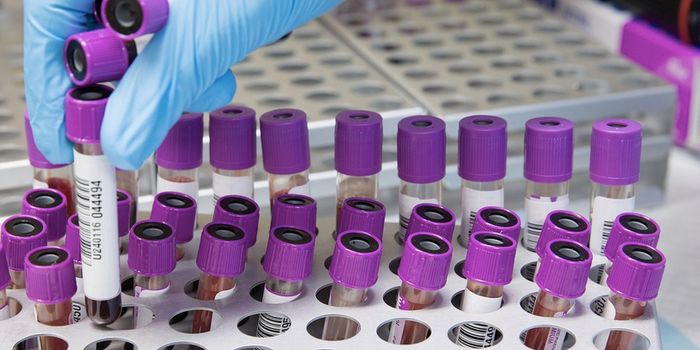Variations in tRNA Genes are More Common Than Thought
The genome contains many different kinds of sequences; some genetic sequences are regulatory, some have no apparent function, and others are coding regions that are used to generate proteins. To do so, the cell transcribes those coding regions into a molecule called messenger RNA (mRNA). Cellular machinery then translates the mRNA sequence into a protein, using transfer RNAs (tRNAs) in the process. Proteins are made of a string of amino acids - a polypeptide chain, and each amino acid has its own tRNA that moves it into place as the chain grows.
Errors in the genetic sequence of a protein can have serious consequences; these mutations might disrupt the function of the protein and result in disease. Most studies relating to genetic diseases have, therefore, focused on the protein-coding regions of the genome. Scientists at Western University wanted to know more about whether mutations in the parts of the genome that code for tRNAs themselves can also cause disease. If such a mutation existed, the genetic code might get misread at any time.
"This actually changes the way we think about the genetic code," noted the lead author of the study, graduate candidate Mathew Berg of Western University's Schulich School of Medicine & Dentistry. "We have shown that variation in tRNA has the potential to lead to a protein being made improperly, which can lead to misfolding and malfunction of the protein."
Misfolded proteins have been implicated in a variety of human diseases, noted the study authors.
"Genetic variation is one of the major reasons why some people acquire a disease while others do not and we expect that an individual with ten abnormal tRNAs might be more likely to acquire a disease than someone with one," said Brandl. "Another interesting aspect of what we saw is that the profile of tRNAs in even the limited group we looked at was very diverse. No two individuals were the same."
It had been thought that there was not much of interest happening in the genes that code for tRNA, said the researchers, and it had not been studied in detail. Previous work had led the research team to hypothesize that they might identify one or two mutations.
The scientists found a new approach that truly revealed the variations in tRNA between individuals. Their methodology suggested that there are many more differences in tRNA than was thought; it may be underestimated 30-fold. This work remains to be confirmed.
In this study, 605 tRNA-encoding genes were assessed in 84 individuals, and the investigators found an average of 66 variants in each person in these genes.
"Because tRNA variation has been hard to analyze, it has largely been overlooked in genetic association studies. Our work suggests that it is important to look at the tRNA genes and we also provide the tools to do so," said Brandl.
The scientists have to learn more about how tRNA genes can influence disease in future work. They are expecting to find even more tRNA gene variants as they expand their study.
Sources: AAAS/Eurekalert! via University of Western Ontario, RNA Biology








